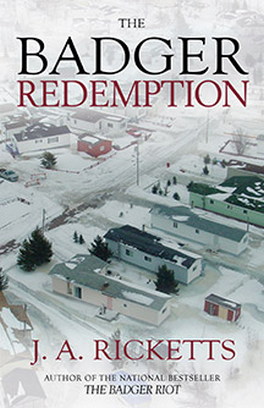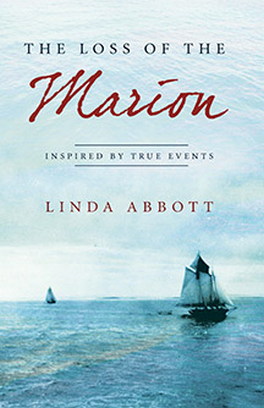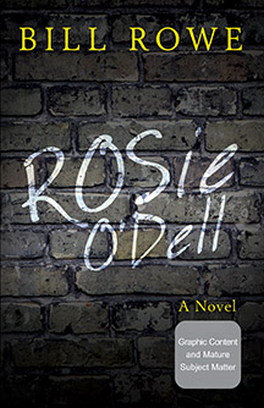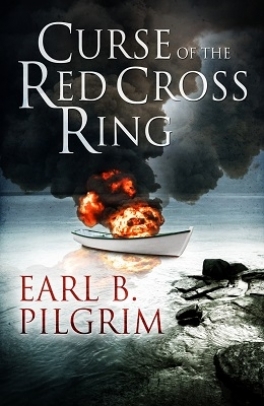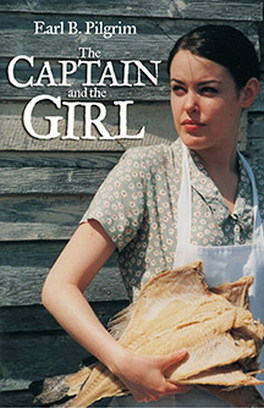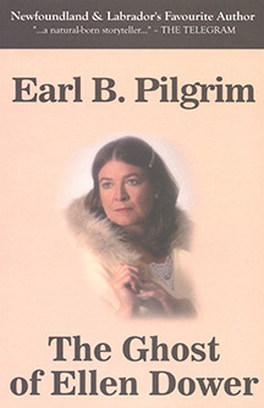Pigeon Inlet is the setting for Ted Russell's stories, written for radio between 1953 and 1961. Here you will meet not only Uncle Mose, but other characters whose names have become synonymous with traditional outport life: Grampa and Grandma Walcott, Skipper Joe, Aunt Sophy, Jethro Noddy, and—of course—King David. Told with a combination of humour and respect and in a manner that captures the essence of folk narrative, these stories stand as a monument to the dignity of the outport Newfoundlander. Edited by Ted's daughter, Elizabeth Miller, this book is a fine companion for Miller's biography, Uncle Mose: The Life of Ted Russell.
The Chronicles of Uncle Mose
by Ted Russell
edited by Elizabeth Miller
With New Year so close, I got to thinkin’ just now about the resolution I made last New Year’s Eve, and tryin’ to figger how well I got on with keepin’ it. So as I could decide whether I’d have the pluck to make another one this year. The one I made last year was to keep out of arguments, because arguments never settled anything, not since Adam and Eve got into the argument over who give which the apple.
Now, come to think of it, I didn’t do too well about keepin’ that resolution, and two or three times during the year I found myself into arguments, mostly with Jethro Noddy and Pete Briggs. Jethro especially, he’d try the patience of a saint. I had a mind one time to give up the resolution altogether and say ’twas just as well to be hung for a sheep as a lamb, but Grampa Walcott give me good advice. He said as how a man should stick to his resolution even if he breaks it a time or two. Why, he said, forty-odd years ago he made a New Year’s resolution not to say a certain little bad word that he used to say every time he lost a codfish off his hook – and he’s stuck to that same resolution ever since. Of course, he said, he breaks it once in a while, but even so, he’s made a lot of progress, and only says that word now when he loses a real big one.
When I told Grampa the resolution I have in mind for the year, he give me a pat on the shoulder. “Well done, Mose,” he said, “that’s a great idea.” You see, my New Year’s resolution this year is to keep my temper (as best I can, of course). Grampa thinks that every man ought to try to control his temper, not so much for his own sake as for the sake of the people around him. Says Grampa, “A man loses his temper and gets off a lot of old nonsense. ’Tis all right for him, because his mind is so fixed on what he’s sayin’ that he don’t even hear it. But what about other people? The ones that got to listen to the trash? ’Tis not fair to them,” says Grampa. “A man has got no more right to a dirty temper than he’s got to a dirty face.”
That last expression might sound odd, but wait till I tell you the story behind it. It concerns Jethro Noddy. Jethro is not exactly the tidiest fellow in the world. Ordinary times, I should say that Jethro remembers to shave once every week – Saturdays – but oftentimes it slips his memory. To explain to you how serious that is, I’d better explain what Jethro’s face looks like with a two- or three-weeks’ whisker on it. If he’d grow a decent whisker, ’twould be all right.
The only thing I can compare it to is the nor’west corner of the Gull Mash, just after you’ve crossed over the barren part and you’re gettin’ near to the foothills where we go for firewood. Well, that section of the Mash is all spotted – mostly bare spots with here and there a clump of ground juniper or a small patch of alders, or a few blueberry bushes or a old gnarled stump – stuff like that. I don’t know if I’m makin’ it clear, but I hope that’ll give you some idea of what Jethro’s jowls look like with a two-weeks’ whisker on ’em.
To make matters worse, he’s not the cleanest fellow in the world neither. He’s got an awful size of a mouth and he told someone one time he was glad ’twas so big because he opened it as wide as he could whenever he went to wash his face, and that meant a great savin’ on soap, because with his mouth wide open, there wasn’t much face left to wash.
Well, one day last summer he looked so untidy that Grampa hit him up about it and told him for goodness’ sake to go home and shave and wash up. Jethro said he allowed his face was his own and that he supposed he could do what he liked with it. But Grampa said that’s where he was wrong. A man’s face wasn’t his own. It belonged to the neighbours that had to look at it, and about all a man owned in his own face was the responsibility to keep it lookin’ shipshape.
Jethro got contrary and didn’t shave for another two or three weeks, till his wife got after him ’cause he was scarin’ the baby, and he’s been better ever since.
So perhaps Grampa is right and a man’s temper is like his face – somethin’ he’s responsible for keepin’ shipshape for the sake of his neighbours. But I’ve got another reason besides that for tryin’ to keep my temper and I’ll tell you about it some other time. Right now I’m overhaulin’ my old duds pickin’ out somethin’ to wear tonight mummerin’* – somethin’ people are not likely to recognize. Yes, I’m goin’ mummerin’, playin’ the fool like everybody else and havin’ a good time for myself.
I’ve heard people say there’s a law against mummerin’, but there’s not. I asked the Ranger years ago and he said you could dress up however you liked provided you didn’t have your face covered up in public. So what we people do in Pigeon Inlet is wear lace or scrim** over our faces and keep it up till we’ve knocked on someone’s door and they’re just about to open it.
You might think I oughtn’t go mummerin’ at my age. But then, who do you think is goin’ with me? That’s right. Grampa Walcott.
* mummering: visiting houses in disguise during the Christmas season
** scrim: gauze material that allows one to see in one direction but not in the other
Taken one by one, each story is a gem.-- The Northeast Avalon Times --
The world of Pigeon Inlet comes to full and wonderful life in this very impressive collection of 75 stories from [Ted] Russell's repertoire.-- Canadian Folk Music --
The stories themselves are not only intrinsically delightful and as much fun to read as they were to hear, they also provide a fascinating look at Newfoundland outport life.-- Canadian Book Review Annual --
Russell's writing is often quite evocative in its descriptive powers and in its ability to employ epigrammatic phrases that capture the essence of its subjects.-- The Independent --














